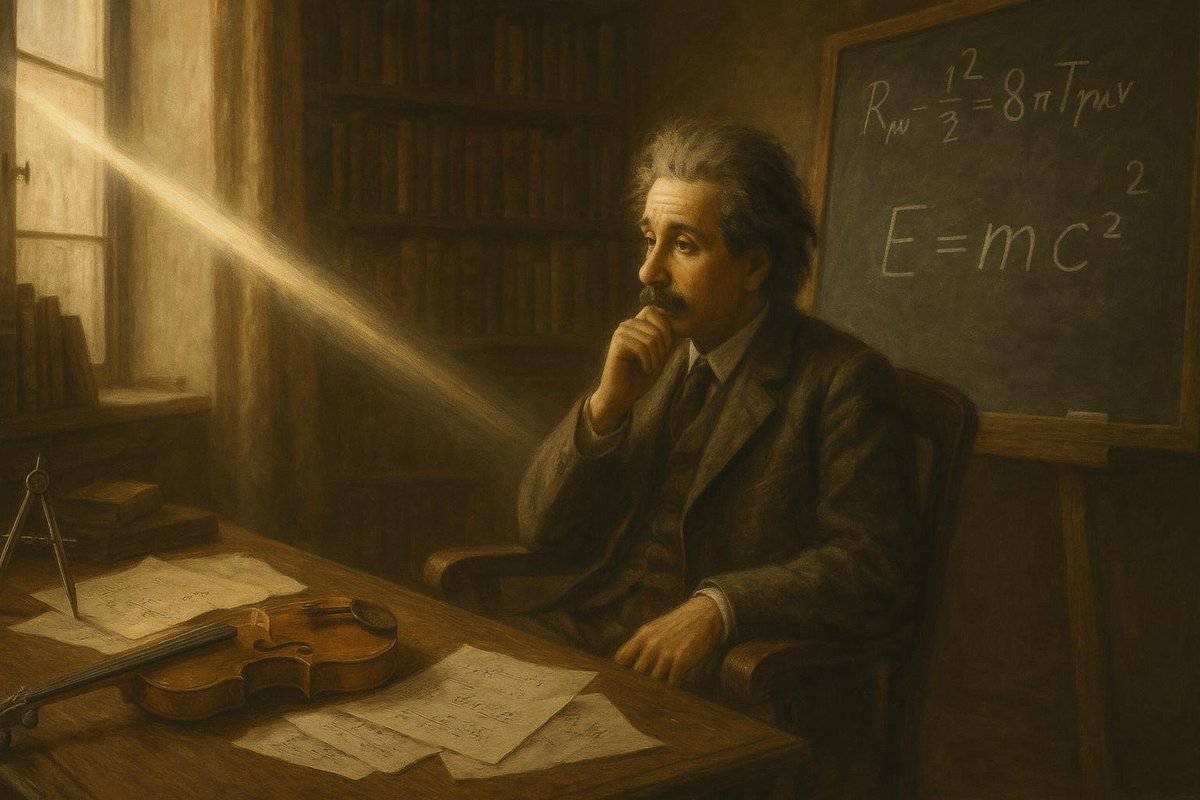
In the labyrinth of human thought, few have ventured as daringly as Albert Einstein, navigating the cosmos not with a telescope, but with the boundless vistas of his imagination. It is no wonder that his thought experiments, like whimsical dances against the backdrop of the universe, once turned the scientific world on its axis. How did this unassuming patent clerk stretch the very fabric of reality? What was in the quiet recesses of his mind that allowed him to glimpse truths beyond the veil of the visible?
Early Influences: The Seeds of Genius
Einstein’s formative years offer a window into the fertile soil from which his revolutionary ideas would sprout. Born in 1879 in Ulm, Germany, Einstein was a curious child, forever questioning the world around him.
- The mysterious compass: At the tender age of five, Einstein was mesmerized by a compass, sparking a lifelong fascination with unseen forces.
- The symphony of science: His musical upbringing, particularly in playing the violin, honed his sense of harmony and pattern recognition.
Rich in the cultural and scientific blossoming of the late 19th century, Einstein’s environment was a cauldron of ideas. The industrial age’s mechanistic view of the world was ripe for scrutiny by a young man who saw beyond the gears and cogs. As time goes on, it’s clear that Einstein’s early exposure to diverse fields of knowledge fertilized his mind for the revolutionary ideas yet to come.
Mental Models: Thought Experiments and Imagination
Einstein’s intellectual style was distinct, marked by playful yet profound mental gymnastics. It was through these thought experiments that he reshaped the world of physics.
- Riding on a beam of light: At 16, he imagined himself racing alongside a light beam, pondering what he would see.
- The elevator experiment: This mental scenario led to the realization that gravity and acceleration are indistinguishable.
His ability to visualize complex ideas without physical experimentation was unique. Interestingly, it was not the scientific method alone but the ability to dream that led him to his groundbreaking theories. The imagery of clocks and trains, light and mirrors, were Einstein’s tools, illustrating the power of imagination as a bridge to understanding reality. Of course, many people believe this imaginative approach is what separated Einstein from his contemporaries.
Challenges & Resilience: The Road to Recognition
Einstein’s journey was not without obstacles. From academic struggles to professional isolation, his path to acceptance was fraught with challenges.
- Academic skepticism: Despite his early papers, many academics were initially skeptical of his theories.
- Professional hurdles: Working at the Swiss Patent Office, he remained outside the traditional academic ivory towers.
The 1905 ‘Annus Mirabilis’ papers marked a turning point, yet it took years before the full implications of relativity were recognized. Einstein’s resilience in the face of skepticism was a testament to his unwavering belief in his vision, an enduring lesson in the power of persistence. As he famously noted, “Imagination is more important than knowledge,” and it was this belief that sustained him through the doubts and derision.
Legacy: The Enduring Impact of a Thoughtful Mind
Einstein’s legacy is woven into the fabric of scientific understanding. His theories of relativity altered the very framework of physics, influencing countless fields.
- General relativity: Provided a new understanding of gravity, fundamentally altering cosmology.
- Social consciousness: Einstein was also a vocal advocate for peace and social justice.
His ideas continue to inspire generations of thinkers, reminding us that the universe is a canvas for the curious mind. Reflecting on his impact, we see how imagination coupled with rigorous thought can transcend the seemingly immutable boundaries of reality. In a world constantly reshaping itself, Einstein’s legacy urges us to question our perceptions and embrace the unknown.
Fuel Someone Else’s Curiosity
As we delve into the stories of great minds like Einstein, let us not merely admire from afar but engage actively with the ideas that changed the world. Share this journey of discovery with others, ignite conversations, and perhaps inspire a mind to wander and wonder. For in the words of Einstein himself, “The important thing is not to stop questioning.”

Leave a Reply